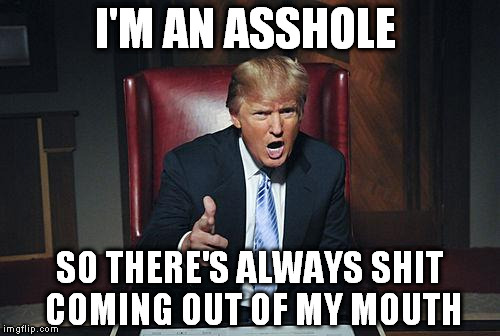TWO REASONS TRUMP COULD ACTUALLY WIN (AND THREE REASONS WHY HE WON’T)
Take a deep breath.
As volatile and nerve-wracking as the great Clinton-Trump Slugfest of 2016 has appeared from the outside, polling data have, for months, suggested a far more stable race. Polling aggregators and election prediction markets have consistently shown Hillary Clinton with an enduring lead over Donald Trump. Then, with less than two weeks remaining until Election Day, F.B.I. director James Comey decided to get involved, firing off a maddeningly vague letter to Congress, alerting them to the renewal of an investigation into new e-mails that may or may not pertain to Clinton’s use of a private server as secretary of state, and throwing the race into chaos. The Mexican peso plunged as Wall Street started pricing in the rising possibility of a Trump win, and the media went into overdrive, hyperventilating over a spate of new polls that showed the race tightening. Now, as we head into the final weekend before America’s much-anticipated day of reckoning, the Hive offers a perspicacious overview of all the multifarious reasons to panic, no matter who you’re voting for on Tuesday.
Yes, the polls could be misleading
The Chicago Cubs had a smaller chance of winning than Trump currently does, as Kellyanne Conway is quick to remind us. That isn’t to say that the statistics showing a likely Cubs win didn’t accurately take into account everything that sports bettors and analysts knew about both teams at the time. It’s merely to say that predictions are just that—our best guess for what will happen. All polls include a margin of error, and right now, Donald Trump is pretty close to striking distance. According to FiveThirtyEight, Trump lags Clinton by just 3.3 points in a polls-only forecast; in 2012, average polling turned out to be off by 2.7 points. Even if the electoral college seems to place Clinton ahead by wider margins in certain states, “this presumes that the states behave independently from national trends, when in fact they tend to move in tandem,” writes Nate Silver . If national polls are off by 2.7 points, for example, that would be more than enough to flip Wisconsin and Minnesota into Trump’s column, Silver notes. “She has quite a gauntlet to run through to hold her firewall, and she doesn’t have a lot of good backup options.”
Top prediction models disagree
There’s a worrying degree of variation among polling aggregators, data scientists, and political analysts. While HuffPost Pollster, which excludes outlier polls, currently gives Clinton a 97.9 percent of victory, Silver’s model is far more conservative, giving Clinton a 68.1 percent chance to account for increased volatility. “[E]verything depends on one’s assumptions, but I think that our assumptions—a Clinton lead, sure, but high uncertainty—has repeatedly been validated by the evidence we've seen over the course of the past several months,” Silver recently told Politico.
Others are far more optimistic. Neuroscientist Sam Wang, who out-predicted Silver in 2012, has observed that while some individual polls may place Clinton narrowly ahead, Trump’s rise shouldn’t be confused for momentum:
“One thing that’s been apparent is that a major feature of voter opinion for last five elections—this is the sixth—is that voters have become entrenched,” says Wang. “The movement of voter opinion has been within a narrow range. In finance and other types of statistical analysis, we call this kind of movement a ‘regression to the mean.’ It happened in 2008, in 2012 and it’s happening this year. When things go too far in one direction, they’ll start to head back to a midpoint. Clinton is now at the low end of where she’s been this season. But if the regression to the mean holds, we should see a little movement back to Clinton. But we’ll see.”
Wang’s Princeton Election Consortium pegs Clinton’s chances of winning at over 99 percent.
The myth of the “secret” Trump voter
“The silent majority is back,” Trump declared less than a week after Clinton’s F.B.I. drama broke out into the open. He was referring to a longstanding belief, possibly backed by political science, that there exist a vast swath of Trump supporters too embarrassed to tell pollsters they plan to vote for him. “When I poll, I do fine. But when I run, I do much better,” he bragged.
Experts have thrown cold water on that idea. A POLITICO/Morning Consult study this week suggests that the myth of the shy Trump voter may be only half-right: according to the survey, Hillary Clinton led Trump by five points, 52 to 47, whereas if asked in an online poll or an automated call—two situations in which there was no possibility of social judgment—that gap narrowed to three points, with Clinton leading 51 to 48. Still, the effect was marginal, and Clinton won in both scenarios.
Nate Cohn at the Upshot has argued that the mysterious newly registered voter is actually more liberal than most pundits have assumed. While Trump may have more enthusiastic white supporters, data shows no new registration “surge” in this category, whereas more younger white voters, minorities, and women registered for the first time. Pollsters and analysts, Cohn mused, were ignoring these “missing nonwhite voters,” and that “it’s Mrs. Clinton—not Mr. Trump—who stands to gain from a surge of new voters.”
Other data also support the idea that polling is underestimating Clinton’s support. While black turnout has been soft compared to four years ago Latinos—who are usually under-polled—appear to be registering and voting at higher levels than before. Talking Points Memo reports that Latino early voting is up 100 percent in Florida, 60 percent in North Carolina, and 25 percent in Colorado and Nevada. Latino Decisions, a Latino advocacy group, told TPM that they are projecting as many as 3.5 million more Latinos will vote in 2016 than in 2012, which could help her win all four aforementioned swing states.
So where does that leave us?
The latest Clinton e-mail drama may not have caused any significant shifts nationally, outside of a brief hiccup, but it may have rearranged Clinton’s pathway to victory. A week after Comey sent his letter, Silver caught up with the recent polling and found that Clinton’s so-called “blue firewall” has started to weaken, with states such as New Hampshire and Michigan suddenly in greater danger of tilting Trump. ”It’s not clear that things are getting any worse for Clinton, but it’s also not clear that they’re getting better,” he concluded. In fact, nothing is getting much clearer than it has ever been—which, perhaps, is liberating in its own way.

Compendium Of Pax Posts About Donald Trump
Illegal Immigrant, Melania Trump.
Didn't Build The Wall Fast Enough
http://paxonbothhouses.blogspot.com/2016/11/illegal-immigrant-melania-trump-didnt.html
Illegal Immigrant, Melania Trump.
Didn't Build The Wall Fast Enough
http://paxonbothhouses.blogspot.com/2016/11/illegal-immigrant-melania-trump-didnt.html
No comments:
Post a Comment